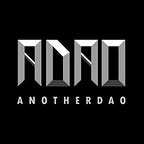What is a DAO?
A decentralized autonomous organization, or DAO, is one that is run by code rather than by leaders.
What Was the Decentralized Autonomous Organization (DAO)?
Decentralization is one of the most important characteristics of digital currencies. This implies they are distributed over a multitude of computers, networks, and nodes rather than being controlled by a single organization like a government or central bank. Virtual currencies, in many circumstances, take advantage of their decentralized state to achieve levels of anonymity and security that are normally unattainable to traditional currencies and transactions.
The DAO was created to be a decentralized and automated organization. It functioned as a sort of open-source venture capital fund, with no normal management structure or board of directors. The DAO was unaffiliated with any nation-state in order to be totally decentralized, even though it used the Ethereum network.
What is the point of forming an organization like the DAO?
By putting decision-making power in the hands of an automated system and a crowdsourced process, the DAO’s creators hoped to minimize human mistake and manipulation of investor funds. The DAO, which runs on ether, was created to allow investors to send money anonymously from anywhere in the globe. The DAO would then issue tokens to those owners, letting them vote on potential initiatives.
What is a DAO and how does it work?
In a nutshell, DAOs are designed to hard-code certain rules that will guide the company or organization from the beginning.
DAOs are built on Ethereum smart contracts, which may be designed to do certain activities only if certain criteria are met. These smart contracts can be configured to perform common business operations automatically, such as only disbursing funds if a certain percentage of investors agree to back a project.
DAOs are seen by many as a mechanism to more firmly guarantee democracy. Stakeholders can vote on issues such as adding new rules, altering existing regulations, or removing a member, to name a few. And the DAO won’t be able to modify it unless a certain number of users vote in favor of it.
The following are some of the hypothesized properties of a DAO:
There is no hierarchy: There isn’t always a hierarchical management structure in place. Stakeholders, rather than leaders or managers, frequently make decisions.
The code is open source, which means that anyone can examine it. Anyone can look back in time on the blockchain to see how decisions were made.
Anyone with internet access might hold or purchase DAO tokens, giving them decision-making power in the DAO.
Changes to the rules of a DAO can be made democratically by voting on new proposals.
Recruiting: Because there are still activities that only humans can perform, a DAO may theoretically hire outside talent.
💢Follow us
Website: https://anotherdao-exchange.web.app/
Facebook: https://www.facebook.com/anotherdao/
Twitter: https://twitter.com/Another_DAO
Telegram: https://t.me/AnotherDAO
Discord: https://discord.gg/NEPHnx793F
